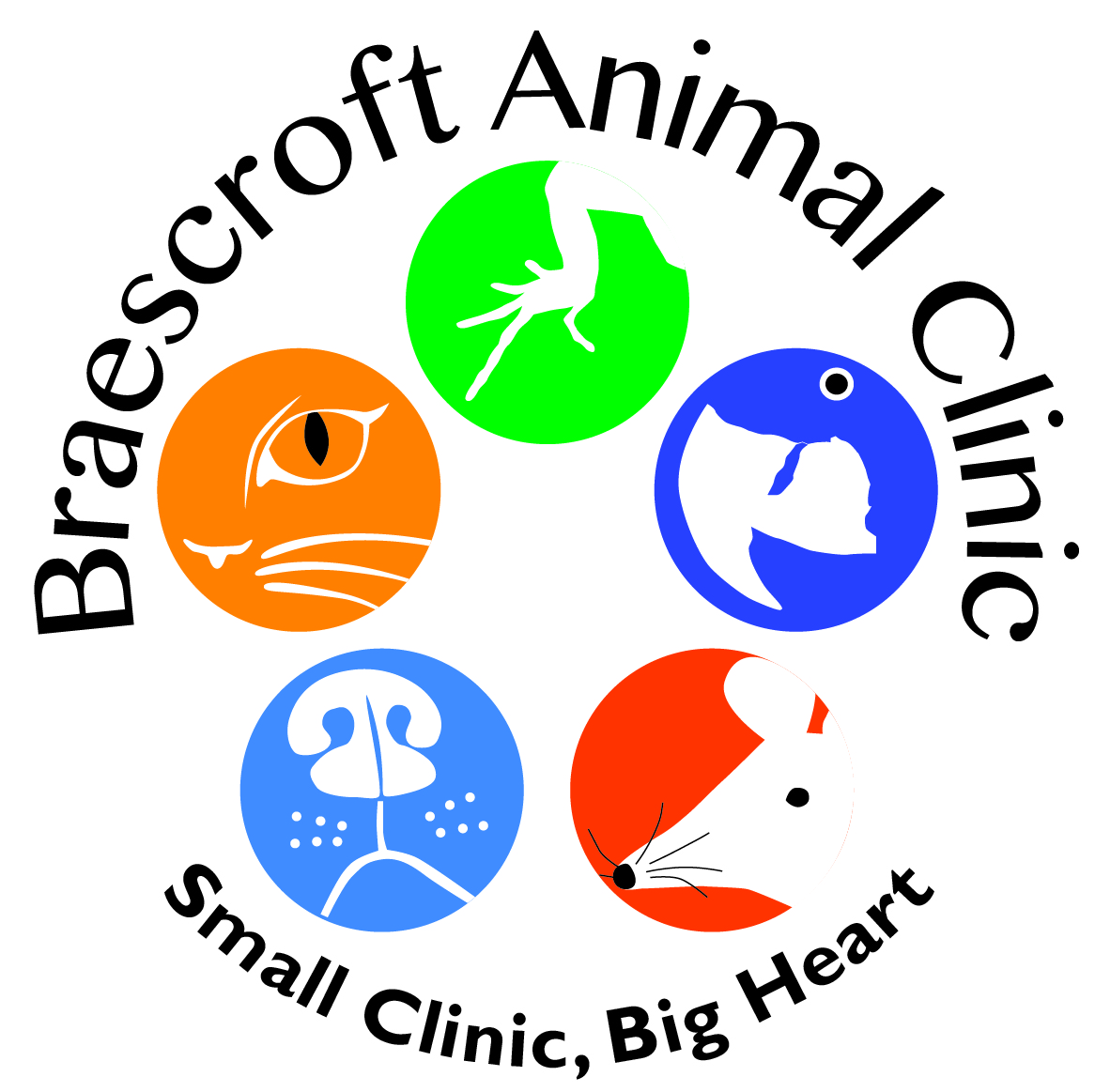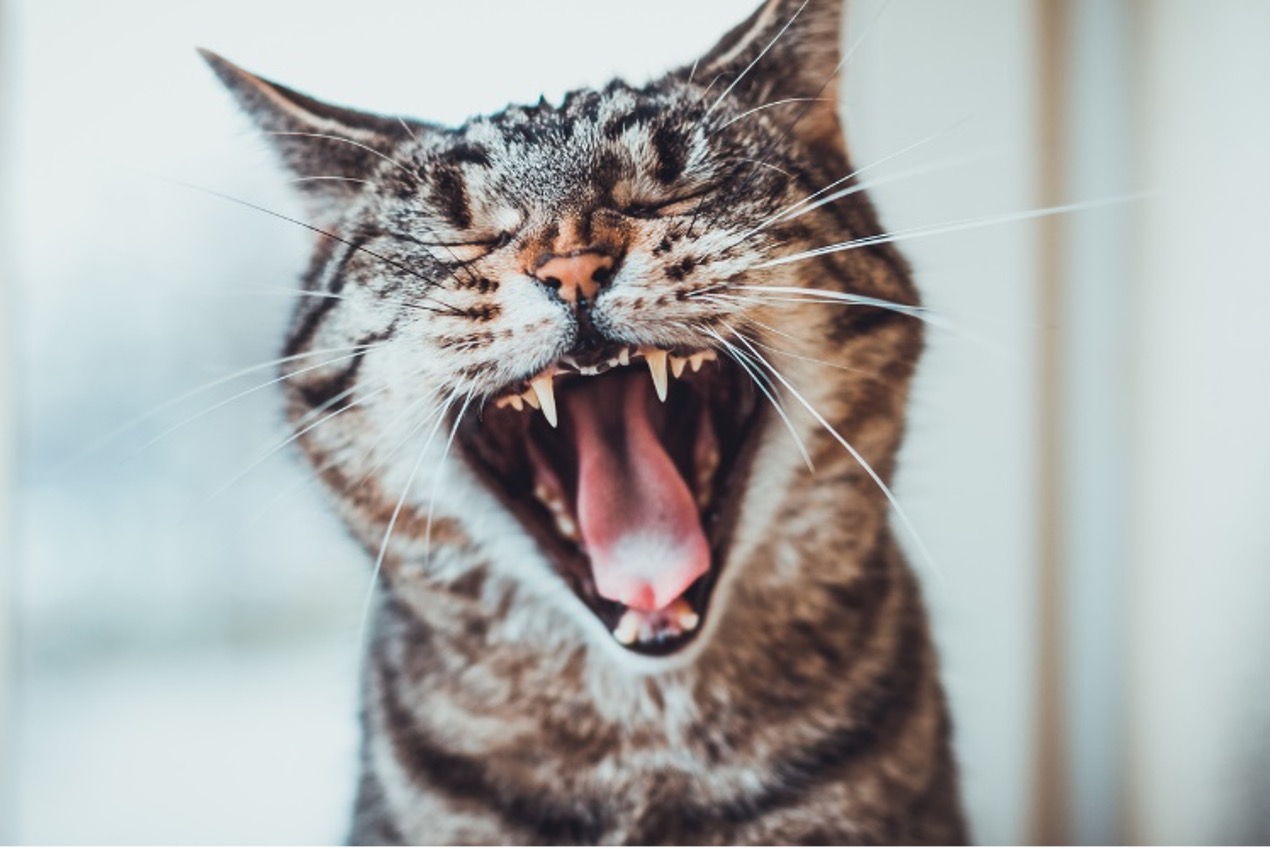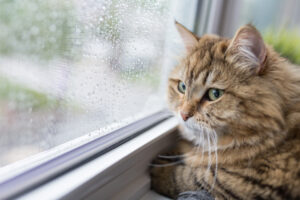Welcome to our blog dedicated to the often overlooked yet crucial aspect of pet care: dental health! Like us, our pets need some TLC for their pearly whites for their overall well-being. Despite our best efforts to shower them with love, pet dental health sometimes slips through the cracks. But, let’s face it, neglecting a pet’s dental care is like ignoring a ticking time bomb, with potential risks ranging from gum disease to issues that could affect their entire body. Throughout this guide, we dive into pet dental health, armed with tips and strategies to ensure your animal companion’s smiles stay strong and bright.
Gum Disease: A Hidden Danger for Dogs and Cats
Most dogs and cats have some degree of periodontal disease by age 3. If left untreated, these patients are at an increased risk for developing heart valve disease and kidney disease. Establishing good oral hygiene habits for your pet is essential in battling periodontal (dental) disease. Dogs and cats also can’t tell us when their mouth hurts. They often have difficulty eating when they need dental care.
Early detection and treatment are crucial, as periodontal disease can lead to tooth and bone loss and pain for your pet. Plaque that hardens into tartar is the starting point, with below-gumline buildup causing infection and damage to the teeth and jawbone. Only professional veterinarian dental cleanings can remove tartar.
Watch for These Signs of Dental Problems in Pets
It is essential to recognize potential dental problems in pets so we catch and treat them before they become serious. Here are some common signs that indicate your pet may be experiencing dental issues:
- Bad breath: Persistent bad breath, often described as “fishy” or “rotten,” can indicate dental problems in pets.
- Red, swollen, or bleeding gums: Inflamed or bleeding gums may indicate gum disease or other dental issues.
- Difficulty eating or chewing: If your pet is having trouble eating or chewing, it may be due to tooth pain or discomfort caused by dental problems.
- Pawing at the mouth: Pets experiencing dental pain may paw at their mouth to alleviate the discomfort.
- Drooling excessively: Excessive drooling can be a sign of dental issues, especially if accompanied by other symptoms such as bad breath or difficulty eating.
- Changes in behavior: Dental pain can cause changes in your pet’s behavior, including irritability, aggression, or reluctance when you touch around the mouth.
If you notice any of these signs in your pet, please get in touch with us so we can examine its teeth. Early detection and treatment can prevent further complications and maintain your pet’s dental health.
Why Your Pet Needs Professional Dental Cleanings
Veterinarians use various methods to address gum disease in pets. The first step involves X-rays and a thorough dental examination to assess the severity of the disease. We then remove the plaque and tartar by scaling and cleaning the teeth, particularly below the gumline. In more advanced cases where pockets may have formed, a veterinarian may conduct root planing to smooth the tooth roots and promote healing. Occasionally, we prescribe antibiotics or other medications to manage infection and inflammation. Regular follow-up visits and proactive dental care contribute to maintaining a pet’s oral health and overall well-being.
Below is an example of before and after pictures of professional dental cleaning on a dog.
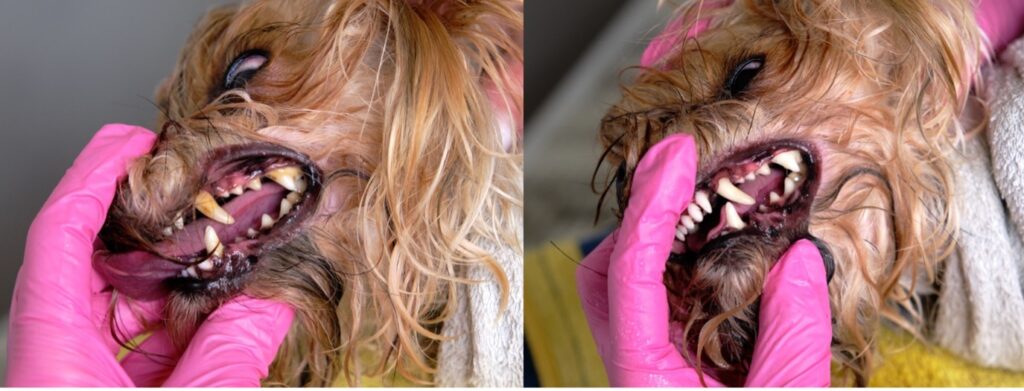
Keeping your pet’s teeth healthy requires professional dental and at-home care. Regular professional pet dental care can prevent your pet from suffering from gum disease or tooth loss. The American Veterinary Medical Associationrecommends a pet dental exam and cleaning at least once a year, and brushing your pet’s teeth at home.
Home Care for Your Pet’s Teeth
Here are steps you can take at home to maintain your pet’s oral health:
- Give your pet dental chews.
- Provide chew toys designed for pet dental health.
- Brush your pet’s teeth daily. It’s a myth that pets don’t need their teeth brushed. Giving them dental chews and chewing toys will help, but only brushing with an enzymatic toothpaste will do the job.
Please click on the picture below to watch the video from the AVMA on how to brush pets’ teeth.
Exotic Pets’ Dental Needs
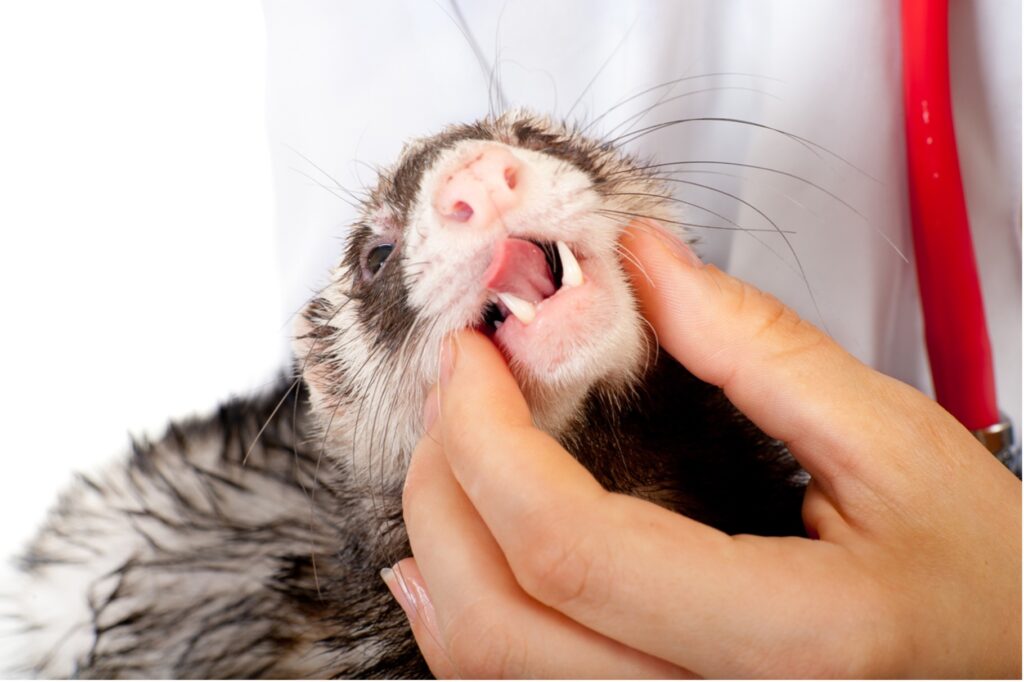
Dental care for exotic pets ensures their overall health and well-being. Many exotic animals have unique dental structures and dietary needs that differ from traditional domestic pets. Without proper dental hygiene, these animals can suffer from dental issues such as overgrown teeth, periodontal disease, and malocclusions. (A malocclusion in an exotic pet like a rabbit refers to a condition where the upper and lower teeth don’t meet correctly, potentially causing pain and making it difficult for the pet to eat.) Regular dental checkups and preventive care, including appropriate chewing toys and a balanced diet, are essential to maintaining proper oral health in exotic pets. By prioritizing dental care, owners can contribute to the longevity and happiness of their exotic companions, promoting a high quality of life for these unique and often delicate creatures.
In Closing: Prioritizing Your Pet’s Dental Health
Prioritizing your pet’s dental health isn’t just about maintaining a sparkling smile; but about safeguarding their overall well-being. From the dangers of untreated gum disease to the subtle signs of discomfort they can’t express, our furry friends rely on us to ensure their mouths stay healthy and pain-free. Professional cleanings and vigilant at-home care form the foundation of a proactive dental regimen that can prevent serious and expensive complications. Whether they bark, purr, or chirp, every pet deserves the chance to enjoy life to the fullest, free from the discomfort of dental issues.
So, let’s commit to being their advocates, partners, and guardians, ensuring their dental health is as bright as their spirits. Together, we can keep those tails wagging and whiskers twitching with delight, one smile at a time. Call today to discuss your pet’s dental care needs.
If you are new to Braescroft Animal Clinic, check out our New Client Special Offer on our website.
Warm regards,
Your Caring Team at Braescroft Animal Clinic
